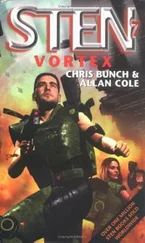Col. Magnus Heerden looked up with irritation from his work. He was responsible for coordinating the SADF’s intelligence-gathering operations in Mozambique, Zimbabwe, and Botswana. The job had once been time consuming and stressful. Now it was simply impossible. He’d once had five men, four of them trained analysts, under his command. Now four were gone-pulled out from under him to bolster the battlefield intelligence effort in Namibia.
That left just himself-and Metje.
The major excitedly fluttered the thin piece of paper in his hand and laid it down in the center of Heerden’s desk, obscuring the map of Zimbabwe he had been studying.
“This explains it all, sir. It’s just as I supposed.
These reports you’ve found so troubling are simply a reflection of this new arms deal between Mozambique and the Russians.”
The colonel scanned the UPI story and shook his head.
“Major, I don’t see how this trade agreement could account for all the unusual movement we’re seeing in Mozambique, and—he emphasized-“in Zimbabwe as well.”
Heerden looked at the wire-service report again.
“More importantly, the materiel we’ve already heard about has to be worth twice this much!”
A haughty frown creased Merje’s lean, elegant face.
“True, Kolonel. That’s why I believe our agents must be overestimating the amounts of military equipment they have spotted. “
“Are you saying they can’t count?” Heerden picked up a manila folder from the side of his desk and opened it.
“Take a look at this, for example.
Windmill reports sighting thirty T-62 tanks and one hundred wheeled armored personnel carriers parked in a wooded area near Moamba-practically right on our border. And they’re being guarded by nearly a brigade of Mozambican troops!”
Metje shrugged.
“How close a look could Windmill get if these tanks were really under such a heavy guard? And would this kaffir know a T-62 tank from a T-55, or a T-72
for that matter?” He shook his head contemptuously.
“The fool probably stumbled across a Red Cross convoy with ten or twenty trucks. At most, he might have seen a small group of new tanks parked in the jungle until the
Mozambicans train troops to man them.”
He smiled.
“Come now, Kolonel. We can’t base our analysis on the hallucinations of a few ignorant blacks.”
Heerden’s powerful hands closed tightly around the edge of the folder, crumpling it.
“I’m not proposing that we do that. But I am suggesting that we’ve received too many unsettling intelligence reports from
Mozambique and Zimbabwe. Reports that can’t be explained by something so convenient as this.” He flicked the tele typewritten copy of the wire-service report with a finger.
“Plane flights in at night to Harare and Maputo, security stepped up at the ports, increased troop activity . “
“All of which the President has seen, Kolonel. He is convinced that these movements are related to their own anti guerrilla efforts. They show that our destabilization strategy is working. The black states have been forced to beg for help from the Soviets-for equipment that is being drained away from the Cubans fighting us in Namibia! Even if they are accurate, these reports that frighten you so much are proof of our success!” Metje’s impertinence was caused by his enthusiasm, which
Heerden tolerated, and safeguarded by his political credentials, which
Heerden despised. As an active member of the AWB, the major had his own channels of communication with the political leadership.
Heerden sat motionless for a moment, uneasily considering the possibility that Metje’s optimistic assessment was the right one. Certainly, it was what the new government wanted to hear. He shook his head. That alone made it suspect. The greatest intelligence failures occurred when analysts allowed their own wishful thinking to obscure inconvenient facts. Unfortunately, he didn’t have enough of those inconvenient facts on hand. A few reports from paid agents. A scattering of intercepted radio transmissions and radar intercepts. Not enough.
The colonel frowned. What he needed were aerial photographs. Solid, undeniable, pictorial proof of the military buildup he feared was taking shape on South Africa’s northern and eastern borders. But he couldn’t get it. He’d put in request after request for Mirage IIIPZ reconnaissance overflights of Zimbabwe and Mozambique. All had been rejected. The Air Force’s small photo recon squadron was already stretched too thin just trying to monitor Cuban movements inside Namibia.
Metje watched him carefully and then leaned forward to pick up the UPI news report.
“Well, Kolonel, have you come up with any other explanation for these Soviet arms shipments?” From his tone he knew that Heerden hadn’t-at least nothing that he could prove to anyone’s satisfaction.
“Then, sir, I recommend that we send the news of this trade agreement up the chain of command. It provides the obvious explanation of the activity we’ve spotted inside Mozambique. And I’m sure the President will be delighted to learn that his strategy has been vindicated. “
His tone was soothing, almost patronizing, and Heerden struggled to control his temper. Metje was an ass, but he was a well-connected ass.
At last, with an almost inaudible sigh, Heerden nodded. Even if he submitted a different, more pessimistic analysis, the major would simply go behind his back. And the colonel didn’t have any doubts about whose version
Karl Vorster would choose to believe.
30TH GUARDS MOTORIZED RIFLE REGIMENT, MAIN
ASSEMBLY AREA, NEAR RUTENGA, ZIMBABWE
Dozens of acres of the fly-infested, unproductive flatlands outside the small town of Rutenga were now covered by camouflage netting, barbed wire, and protective minefields. Trains from the south arrived almost daily, pulling flatcars crowded with Cuban tanks, armored personnel carriers, and artillery pieces. And day by day, the equipment parks outside Rutenga grew larger.
Hard-eyed soldiers of Zimbabwe’s North Korean-trained Fifth Brigade patrolled the town’s streets and railway station-on constant guard against South African spies or commandos,
Travelers of every description were hauled in for questioning by local interrogators or taken north to the capital, Harare, for more rigorous investigation. Antiaircraft batteries dotted the surrounding landscape, ready to down any unauthorized plane that poked its nose into forbidden airspace.
Both Zimbabwe and Cuba were determined to prevent any word of their military buildup from leaking out. But their efforts were unnecessary.
South Africa’s leaders weren’t even looking in the right direction.
OCTOBER I I -CUBAN EXPEDITIONARY FORCE HEADQUARTERS, WNDHOEK, NAMIBIA
Col. Josd Suarez, Gen. Antonio Vega’s chief of staff, looked tired. Three days of ground-hugging airplane flights, stomach-wrenching helicopter rides, and secretive movement all across southern Africa had taken their toll. Most wearing of all had been Vega’s relentless questioning. He’d insisted on going over every last detail of the trip, and if Suarez hadn’t known what to expect, he would have been shattered by the persistent probing.
Vega knew that his fierce, pitiless questioning was just a symptom of his own frustration. For security purposes, he was supposedly planning a new offensive in Namibia-all the while staying as visible as possible to draw
South Africa’s eyes away from the buildup in Mozambique and Zimbabwe. It was a necessary task, but it left him unable to monitor directly the unfolding of his own plan. It also left him feeling like a caged lion.
Suarez answered his last question and sat back, looking even more tired.
Vega nodded. The colonel was one of his best officers. He’d given a good, concise summary of his impressions and activities.
Читать дальше












